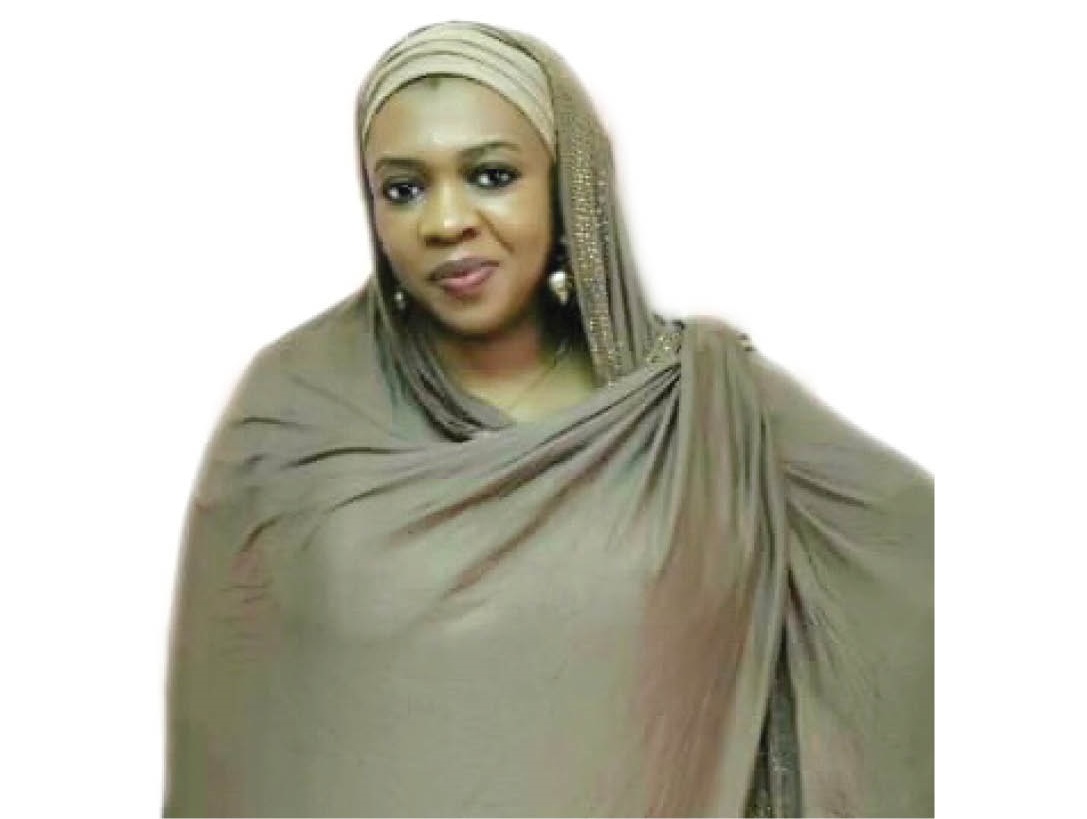Hauwa Sidi Aliyu is the owner of Adams Pages, a bookstore that offers a library, reading room and a work space. Here, she talks about her biggest challenge, why she established such a place and more. Excerpts:
Bookshelf: Adams Pages is not just a bookstore but offers a number of other attractions, such as a work station, library, book rentals and a reading room. What triggered the entire concept?
Hauwa Sidi Aliyu: I love reading and have always imagined a place where you could just escape and have your very own sanctuary where you can read. When I discussed it with a few friends they agreed it would be lovely to have such a place in Abuja, a place where there are choices. You can buy a book and sit there to read and a café where you can have some tea or coffee. We have been in operation for about two years now. I started with a bookstore and gradually offered other services. So far, it has been okay. I do it out of passion.
Bookshelf: What’s the patronage like, generally? For instance, you offer book rentals. Do customers rent books?
Aliyu: People register for the library and rent one or two books, but they end up buying them because they sometimes return them late when the charges rise. During school holidays, we get a lot of patronage because many parents want their children to read. I remember one of my assistants saying if we keep selling our books, there won’t be a library any more. But then, not everyone can afford to buy new books, so we run the library also like a used books store where you can either rent or buy.
For the bookstore, we need to get as many people as possible to know we exist. With the few who know that we exist, the patronage has been amazing. Presently, Nigerians are really patronising books by indigenous authors. Our Nigerian authors are very good and can compete anywhere in the world. For example, we have restocked for the third time ‘Becoming Nigerian: A Guide’ by Elnathan John. I don’t know how profitable it is for the authors and publishers, but then I think it’s more about passion than the money. We recently got a set of books from the United Kingdom by Suleiman Ahmed. He published over there and it has been selling on Amazon. He decided to send here to try the Nigerian market. But a typical Nigerian will not buy a book written by a Nigerian that is over N4,000. However, so far so good, social media has helped a lot.
Bookshelf: What does it usually take for you to stock your bookstore?
Aliyu: It’s a bit easy to get Nigerian books because publishers and authors tend to contact us and then you have an agreement on how you want to get the books sold. Sometimes, we simply call and order. But getting foreign books is difficult. Sourcing them is not the problem, but rather bringing them into the country. From my conversation and interaction with other booksellers, we have the same challenge. We just want to have these books. By the time you put together shipping and cargo, there’s hardly any profit. However, there’s this satisfaction we get from acquiring them. Since I started, one of my greatest highs is getting book mails and the act of opening them. The sea cargo is relatively cheaper but it takes a while.
Bookshelf: What’s the largest shipment you have had so far?
Aliyu: It’s about fifty kilogrammes. I haven’t done sea cargo; it has always been air cargo for me. I’m not a whole seller, so I tend to buy books in bits. I don’t buy more than a dozen so we can have a wide variety. If we grow bigger, we can think of larger shipments.
Bookshelf: What five books do customers buy the most from your bookstore?
Aliyu: One is ‘Becoming’ by Michelle Obama. When it came out it was selling at N12, 000 because there was a rush for it. Later, we were able to get it at a much cheaper rate. A lot of people bought it as Christmas gifts. There’s also ‘Sapiens: A Brief History of Humankind’ by Yuval Noah Harari. For Nigerian books, there’s Elnathan John’s ‘Becoming Nigerian: A Guide’, Abubakar Adam Ibrahim’s ‘Season of Crimson Blossoms’, and Lola Shoneyin’s ‘Baba Segi’s Wives’.
Bookshelf: Are there books that have been impossible to get so far?
Aliyu: None. Well, maybe at the beginning when I started. There was a time I went to Dubai and ended up making a big loss. Books over there are terribly expensive. The same wholesalers who ship to Nigeria are the same ones that send to them. I was selling ‘Kiss That Frog’ by Brian Tracy for N3,500 and was shocked when they were selling it for the equivalent of N6,500. So I have been in the business for what’s still a short period and I am learning on the job. Ordering from publishers overseas is not a big deal. You order and it goes straight to the cargo company. Someone once made a Facebook post on a book on international crime and asked if it was possible to get it in Nigeria. The customer was referred to Adams Pages and I said I could get it in two weeks. I found out how much they were charging, calculated the shipping and gave the customer the price and the person said he was interested. So, I bring four or five copies of such books to test the market.
Bookshelf: What is your advice to an aspiring bookstore owner?
Aliyu: First and foremost, one must have the passion and have the mindset that it isn’t going to be about making money from the onset but putting readers first and devising ways of attracting them. It has to be what one loves doing. It shouldn’t be for the sole purpose of making money.

 Join Daily Trust WhatsApp Community For Quick Access To News and Happenings Around You.
Join Daily Trust WhatsApp Community For Quick Access To News and Happenings Around You.


